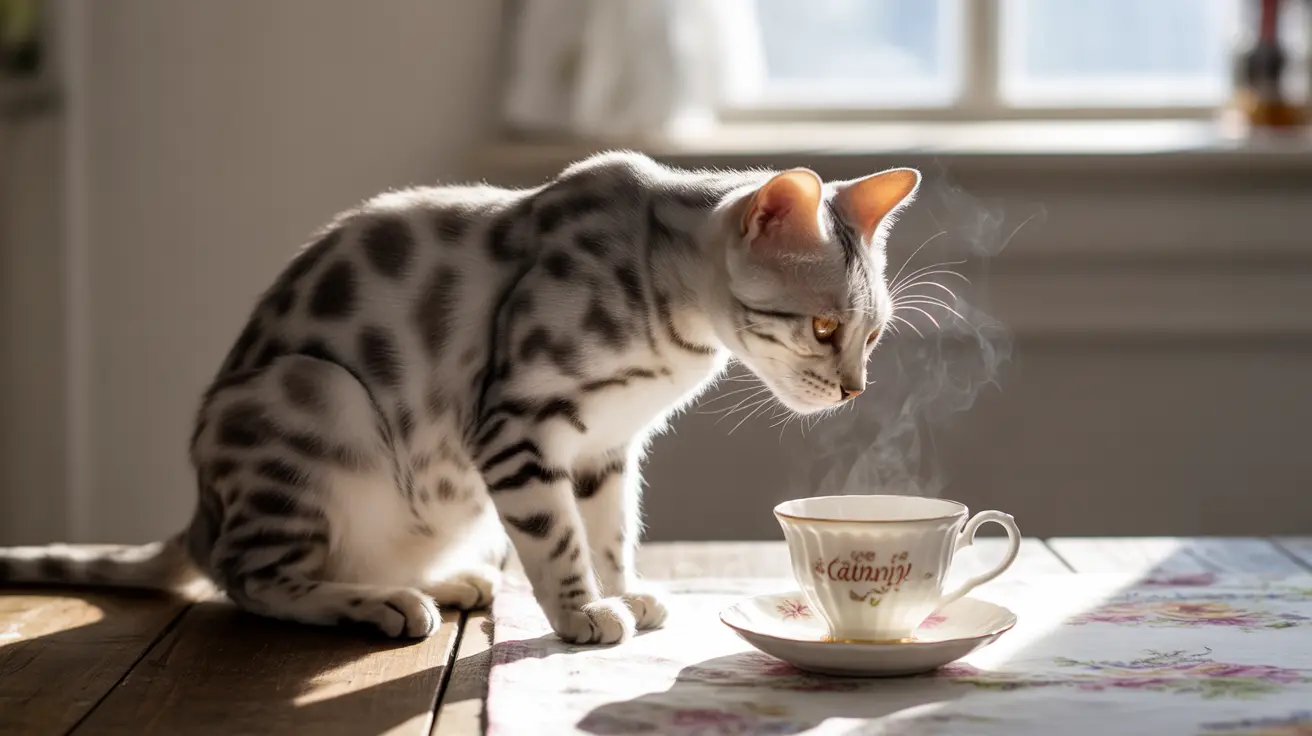キャットニップは猫に与えると強い陶酔や興奮を引き起こすことで有名ですが、「キャットニップ 人間 食べる」ことへの安全性や効果について疑問を持つ方も少なくありません。本記事では、キャットニップの伝統的な利用から、安全に摂取する方法、注意点、作り方まで、幅広く解説します。
キャットニップ(Nepeta cataria)はシソ科に属するハーブで、古くから人間の伝統療法やハーブ療法に使用されてきました。成人が適量を守って摂取する場合、「キャットニップ 食用 安全性」は比較的高いとされていますが、利用の際にはいくつかの注意点や禁忌を理解しておくことが大切です。
キャットニップの人間における作用と成分
キャットニップの猫への興奮作用とは異なり、人間が摂取した場合は主に穏やかな鎮静作用(「キャットニップ 落ち着き」)が現れるとされています。これは「キャットニップ 成分 ネペタラクトン」と呼ばれる有効成分によるもので、猫には刺激的に、人には気持ちを落ち着かせる方向に働きます。人間が利用する場合は、ハーブティーやサプリメントの形で飲むのが一般的な「キャットニップ 摂取方法」となっています。
キャットニップの安全な摂取方法と適量
最も手軽かつ安全にキャットニップを摂取する方法は「キャットニップ お茶 作り方」(ハーブティー)です。以下は「キャットニップ ハーブティー 作り方」の基本手順です。
- 乾燥したキャットニップの葉を小さじ1〜2杯用意します
- 熱湯に10〜15分浸します
- 十分に抽出したらこして飲みましょう
- 1日の上限は2〜3杯程度にとどめ、「キャットニップ 服用 上限」を守りましょう
- 初めての場合は少量から始めて、体調の変化(「キャットニップ 不眠 効果」「キャットニップ 消化促進」など)を確認しましょう
ハーブティー以外にも、チンキ(液体ハーブ抽出物)や外用として用いるケースもありますが、これらは「キャットニップ 利用方法 人間」として推奨される使い方ではなく、専門家の指導を仰ぐべきです。
キャットニップの健康効果と伝統的利用
キャットニップは古くから伝統療法の中で様々な効果があるとされてきました。「キャットニップ 健康効果」や「キャットニップ 効果 人」については以下のようなものが挙げられます。
- 穏やかな鎮静作用――リラックスや「キャットニップ 不眠 効果」に期待
- 「キャットニップ 消化促進」――ガスや胃のむかつきなど消化不良の緩和
- ナチュラルな虫除け作用
- 軽度の鎮痛効果
- 抗炎症作用
摂取時に気を付けたい安全性と注意点
成人が適量を摂取する分には「キャットニップ 食用 安全性」は高いとされていますが、「キャットニップ 注意点」や禁忌事項についても理解しておきましょう。
キャットニップの禁忌(利用を避けるべき人)
- 妊娠中・授乳中の女性(「キャットニップ 妊娠中 使用」)
- 子供(「キャットニップ 子供 安全性」)
- 手術予定のある方
- 一部の医薬品(特に鎮静剤)を服用中の方
- 過多月経・骨盤内炎症性疾患を有する方
キャットニップの主な副作用
健康な成人でも過剰摂取した場合には、「キャットニップ 副作用」として以下のような症状が現れることがあります。
- 頭痛
- 吐き気・嘔吐
- 眠気や倦怠感
- めまい
- 消化不良やお腹の不調
よくある質問
キャットニップは人間が食べても大丈夫ですか?
成人であれば、「キャットニップ 人間 食べる」ことは適量なら安全とされています。特にハーブティーとしての利用が推奨されますが、眠気や消化器の不調、薬との相互作用などリスクもあるため、少量から試し、体調を確認しましょう。
キャットニップを食用に使う場合の注意点は何ですか?
食用にする際は、乾燥葉をハーブティーとして利用するのが最も安全です。「キャットニップ 摂取方法」「キャットニップ 服用 上限」を守り、初めての場合は少量から試みてください。必ず食品グレードのキャットニップを使用し、ペット用製品は避けましょう。
キャットニップにはどんな健康効果がありますか?
伝統的にはリラックスや不眠の緩和、「キャットニップ 消化促進」などの働きが期待されています。その他に、虫除け作用や軽度の鎮痛、抗炎症効果が挙げられますが、これらは主に経験的な報告です。
キャットニップティーの作り方を教えてください。
「キャットニップ お茶 作り方」として、乾燥したキャットニップの葉を小さじ1〜2杯熱湯に10〜15分浸してからこし、これを1日2〜3杯まで摂るのがおすすめです。
キャットニップを摂りすぎるとどうなりますか?
「キャットニップ 副作用」として、頭痛、吐き気、眠気、めまい、消化不良などが現れる恐れがありますので、「キャットニップ 服用 上限」を守りましょう。
キャットニップを利用してはいけない人はいますか?
妊娠中・授乳中の方、子供、手術予定のある方、一部薬剤を服用中の方、過多月経や骨盤内炎症のある方は、キャットニップの使用を避けてください(「キャットニップ 禁忌」)。
キャットニップには副作用がありますか?
はい、過剰摂取時には頭痛、吐き気、倦怠感、消化器症状などの副作用が出る場合があります。体質により「キャットニップ アレルギー」を感じる方もいます。
妊娠中や授乳中でもキャットニップを使用できますか?
いいえ、「キャットニップ 妊娠中 使用」は推奨されていません。子宮刺激作用や過度な眠気を引き起こすリスクがあります。
キャットニップと他の薬との飲み合わせで注意すべきことはありますか?
キャットニップは鎮静薬、リチウム、同じく鎮静作用のあるハーブなどと相互作用する可能性があります(「キャットニップ 薬との相互作用」)。何らかの薬を服用中の方は、事前に医師にご相談ください。
人間にとってキャットニップの主な作用は何ですか?
穏やかな鎮静作用、リラックス効果、睡眠の質向上、消化促進や虫除けとしての効果などが挙げられます。
キャットニップを摂取することで体調に変化が現れることはありますか?
はい、少量でも眠気や消化の改善といった変化が現れることがありますが、過剰摂取では頭痛や消化不良などの副作用が出る場合もあります。体調や既往歴に注意し、少量から始めてください。
キャットニップを健康管理に取り入れる際は、他の薬剤を服用している方や何らかの健康上の懸念がある方は、事前に医療機関へご相談されることをおすすめします。






